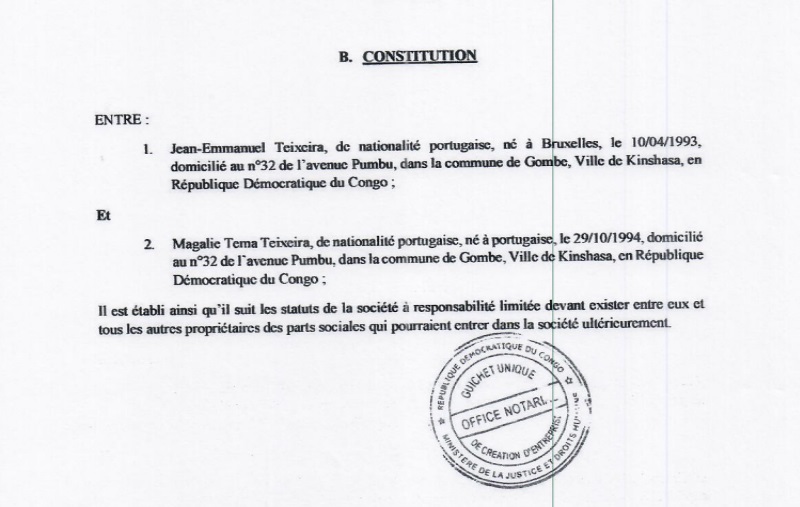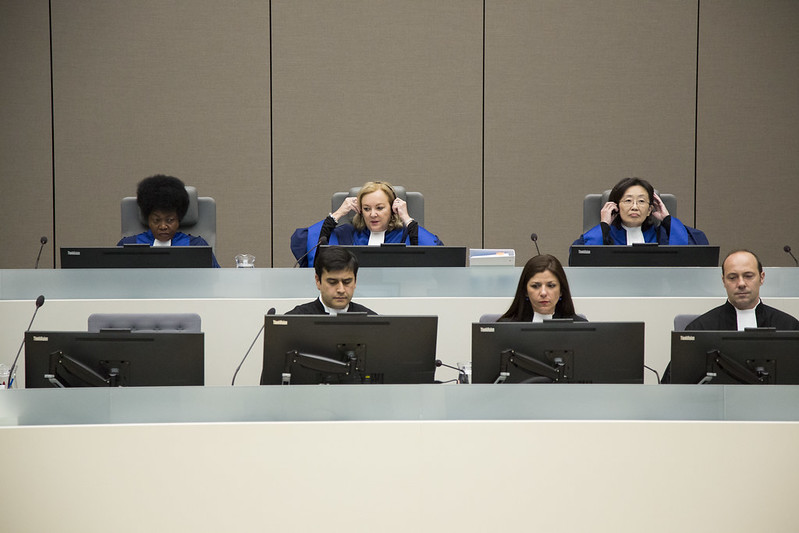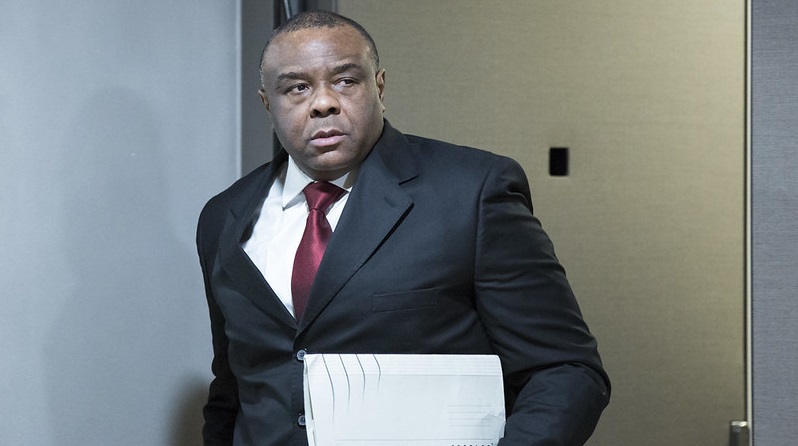Family members of a powerful government minister in the Democratic Republic of Congo accused of war crimes have set up a carbon offsets company in the country, sparking fears the company will get favourable government treatment.
The Societe Conservation Forestiere (SCF) was set up in December 2022 and is co-owned by two adult children of the DRC’s defence minister Jean-Pierre Bemba, who was accused of war crimes and found guilty of bribing witnesses. This is according to previously unreported company documents seen by Climate Home.
The documents show its stated goal is to sell carbon credits and it has applied to the provincial government for a “forest conservation concession” in the DRC province of Sud-Ubangi but it has not made progress on the ground and little else is known about it.
Anti-corruption activists raised concerns that Bemba could use his political power over the environment minister Eve Bazaiba, as her party leader, to benefit the company. Human rights activists criticised the war crimes committed by Bemba’s forces across Central Africa.
“A la carte menu”: Saudi minister claims Cop28 fossil fuel agreement is only optional
Carbon Market Watch researcher Jonathan Crook said the revelations raised “red flags” over whether the company is free from conflicts of interest and has the experience to conduct forest conservation projects that get informed consent from local peoples.
He added: “It is very concerning to hear of potentially significant conflicts of interest and serious allegations of human and land right abuses reported about individuals linked to this company”.
Bemba was charged with war crimes and crimes against humanity but, after a 10-year trial at the International Criminal Court, he was eventually acquitted on appeal. He was found guilty of bribing witnesses in the case.
Ban on business
The documents show SCF’s shares are owned equally by Bemba’s 30-year old son Jean-Emmanuel Teixera and 29-year old daughter Magalie Tema Teixera. They are listed under their mother’s last name and as Portugese citizens.

The SCF’s constiution
Article 97 of the DRC’s constitution bans government ministers from carrying out “any professional activity”.
Jimmy Kande is an anti-corruption activist from the DRC. He told Climate Home that the country’s politicians often put projects in the names of their children.
Kande told Climate Home that this company may find it easy to get the support of the environment minister because she “depends on Jean-Pierre Bemba”.
Neither child has any track record of forest conservation and both remain close to their father. Magalie goes by Magalie Bemba on social media and re-posts her father’s messages praising his militia turned political party – the Movement for the Liberation of the Congo (MLC).
Jean-Emmanuel’s recent wedding was attended by his father, the president of the DRC Felix Tshisekedi and Laurent Gbagbo, the former president of the Ivory Coast who Jean-Pierre Bemba met whilst they were both on trial for alleged war crimes in The Hague.
A power player
Jean-Pierre Bemba was born into extreme wealth and power. His father was a minister under the DRC’s long-time dictator Mobutu Sese Seko.
When the DRC descended into wars which would end Mobutu’s rule, Bemba set up the MLC as a rebel militia and took control of almost a third of the country.
South African ministry uses opaque modelling to argue for weakening climate ambition
Human rights groups have accused them of raping and massacring and indigenous pygmy people during these wars.
In 2003, the warring factions signed a peace agreement which made Bemba one of five vice-presidents in the transitional government.
Three years later, Bemba was the main challenger to Joseph Kabila in presidential elections. The electoral commission declared Kabila the winner.
War crimes
The next year, on a trip to Belgium, Bemba was arrested on the orders of the International Criminal Court.
Their arrest warrant says he was suspected of perpetrating crimes against humanity and war crimes, particularly allowing his MLC troops to rape, murder and pillage during a conflict in the Central African Republic (CAR). In 2002, MLC fighters interceded to suppress a coup attempt against CAR president Ange-Félix Patassé.
Witnesseses told the court that civilians were murdered when they tried to stop their property being stolen. The thefts were “not justified by military necessity”, the ICC ruled.
In 2016, three different ICC judges found Bemba guilty of war crimes and crimes against humanity, namely the murder, rape and pillage committed by MLC fighters.

The three judges which declared Bemba guilty in 2016 (Photos: International Criminal Court)
While human rights groups celebrated the decision, then-MLC legislator Bazaiba called it “selective justice”. Bemba immeditately appealed. Two years later, a panel of five brand new judges narrowly reversed the decision, arguing the previous judges failed to properly prove that Bemba had the power to stop the war crimes.
The ruling was enough to free Bemba from prison in time for him to return to the DRC and try to run for president in the 2018 elections.
But the electoral authorities banned him from running because, while the ICC failed to convict him for war crimes and crimes against humanity, it did find him guilty of bribing witnesses in the trial.
The elections were won by Felix Tshisekedi, who sought to bring rivals from the MLC into his coalition.
He appointed the MLC’s secretary general Eve Baziaba as environment minister in April 2021 and Bemba as defence minister in March 2023.
The MLC’s support helped Tshisekedi win a second term in office last month and he is likely to keep both Bemba and Bazaiba as ministers.
Carbon offsets supporter
Since her appointment as environment minister, Bazaiba has been a vocal supporter of carbon offsets at Cop climate talks.
At Cop28, UN records show she was accompanied by her own daughter Nono Manganza and by Jean-Pierre Bemba’s eldest daughter Cynthia Bemba-Gombo.
At the conference, she stood alongside indigenous people from around the world and argued: “The world asks us – Amazonia, Congo Basin, Mekong basin – to preserve our forests. But to do this means adaptation of our lives, our agriculture, of everything”.
“And this adaptation needs funds,” she added, “so, we say OK, and we entered the carbon markets.
But back home, Greenpeace Africa have accused her of encouraging land-grabbing after she signed a mission order telling a team to “arracher” (which translates as “wrest”) consent from local communities for a carbon offset programme.
At the time, Greenpeace campaigner Irene Wabiwa accused her of “demonstrat[ing] contempt for Congolese law, civil society and the rights of local communities”.
Human Rights Watch researcher Thomas Fessy said “it’s easy to suspect that Bemba’s family – particularly at a time when a close political ally is at the helm of the environment ministry – has seen a business opportunity in a field that relatively new to Congo”.
The DRC is home to a twentieth of the world’s forest and polluting companies are expected be buying $10-40 billion a year of carbon offsets by 2030.
Magalie Bemba, Eve Bazaiba and the government of the DRC did not respond to requests for comment.
